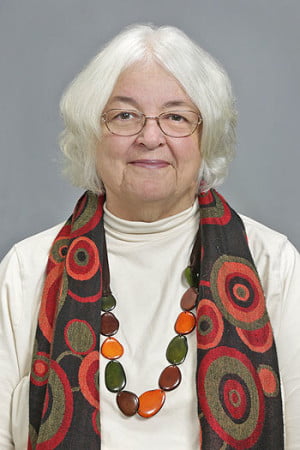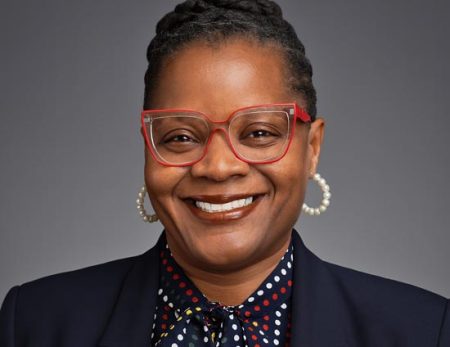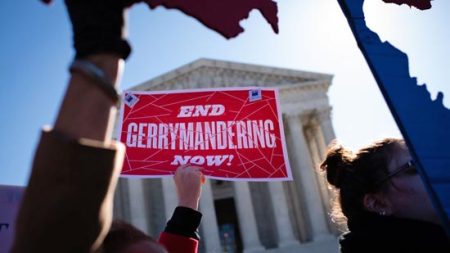Census Delay Causing State Elections Disarray

Photo: Tim Barnwell
Legislative News by Nelda Holder –
In what promises to be one of the biggest election headaches the state has faced for some time, the US Census Bureau has announced that it will not be releasing population data from the mandatory 2020 census until September of 2021—months later than the norm because of coronovirus-related delays, and too late to facilitate the usual state redistricting process.
This delay also directly affects pending municipal elections in any North Carolina cities governed by district representatives. Redistricting maps that must be redrawn every decade will not be available in a timely fashion for those municipalities across the state that elect representatives on a ward or district basis.
As a result, the executive director of the State Board of Elections, Karen Brinson Bell, has already encouraged state lawmakers to move all of the municipal elections in the state to 2022, and to extend the 2022 primaries from March to May in order to facilitate the delay in population data.
Only 62 of the more than 500 NC municipalities elect by ward or district (Asheville does not), but Brinson Bell asserted that a delay would avoid confusing voters. Extending the time frame, she noted, would also allow for a potential delay in the December 2021 filings for the March 2022 primary in the state, so she is requesting that legislators move the state primary date to May 3, 2022, with a July 12 runoff primary and November 8 general election. Her proposal includes having municipal elections coincide with those dates. State law allows for such a delay by offering special rules for a situation in which it is not possible to adopt the necessary changes.
Adding to the overall uncertainty of districts and candidate filings under a newly drawn map, North Carolina anticipates the addition of one Congressional representative in the 2022 election due to its population growth.
Prison Release Settlement Announced
In April of 2020, as the Covid-19 pandemic loomed before us on an unimaginable scale, the state chapter of the NAACP (along with the ACLU, Disability Rights North Carolina, four inmates, and one prisoner’s wife) petitioned the North Carolina Supreme Court for a plan for the early release of inmates especially susceptible to the virus, as well as prisoners who were already soon to be released from the system.
An announcement by the Department of Public Safety issued on February 25, almost a year later, says that the court settlement provides for a 180-day stay of the legal matter, during which parts of the agreement will continue to be worked out. Actions planned include increasing the pace of transitioning offenders into the community in order to accomplish “early reentry for 3,500 people within six months”; allowing individuals to serve their remaining time under community corrections supervision; and reinstating post-release supervision or granting early release to offenders in the Mutual Agreement Parole Program.
Further actions include a number of safety protocols including vaccine education for staff and the prison population, with vaccine incentives for offenders; providing masks, sanitation, and hygiene products to staff and inmates; monitoring facilities for compliance with Covid-19 mitigation efforts; providing family notifications of serious illness, injury, or death of hospitalized persons; and implementing an anonymous complaint system for incarcerated persons to report issues related to Covid-19 mitigation.
NC NAACP president Rev. Dr. T. Anthony Spearman calls the settlement “historic” and notes that the NC prison situation causing the suit was a “convergence of two pandemics both fueled by racism and classism—Covid-19 and an unjust criminal legal system.” His organization “continues to call on leadership of this state to join us in our mourning and in our hopes for a better future by ensuring equal justice and safety for all North Carolinians.”
Honoring the Civil Rights Movement in NC
The NC African American Heritage Commission is partnering with the NC Office of Archives & History and Visit NC to honor this state’s history in the advancement of civil rights of its people of color, especially African Americans. Noting the work of “everyday people” in protesting racial injustice and resisting oppression, the commission wants to help communities across the state to physically mark sites critical to the Civil Rights Movement—highlighting both the well-known and the “unsung” with an NC Civil Rights Trail.
The project has already planned markers in 10 of the state’s Hometown Strong counties (Hometown Strong is a partnership between state agencies and local leaders to champion rural communities), including Madison, Burke, and Swain. To apply for a marker, contact the commission at aahc.nc.gov/programs/civil-rights-trail.
Eyeballing the Legislature
A scan of some of the more recent legislation introduced in the NC Statehouse always yields interesting results. Here are some examples of your legislature at work over the past month.
SB 190 (Prohibit Weapons at Voting Place): Unlawful to possess or carry any dangerous weapon at a location used as a voting place (within 100 feet from door of entrance) while location is open. Class 1 misdemeanor. Primary sponsors: Mayfield (D), Fitch (D), Marcus (D)
SB 180 (Restricted Driver’s License for Undocumented Immigrants): For applicants who are not lawfully present in the United States or have limited legal status, and who have resided in NC for at least one year. Must have limited legal status (or provide valid Individual Taxpayer ID Number, current passport, or unexpired consular identification). Expires on birthday of second year. Valid only for demonstrating licensure to drive motor vehicle in the state; not valid for voter registration or public benefits. Primary sponsors: Mayfield (D), Fitch (D)
SB 179 (Asheville Local Option Sales Tax for Transportation): Would authorize city to levy a municipal quarter-cent sales and use tax for public transportation upon a vote of the majority of voters in a referendum. Primary sponsor: Mayfield (D)
SB 167 (Remove Barriers/Gain Access to Abortion Act): Guarantees that, throughout pregnancy, patients are able to make their own healthcare decisions with the advice of health care professionals they trust and without government interference. Remove burden of restrictions predominantly falling on people of color, young people, and people with disabilities, low-income and rural people, and undocumented people. Remove barrier to emergency abortion past twentieth week of pregnancy (as based on qualified physician’s findings). Primary sponsors: Marcus (D), Murdock (D), Chaudhuri (D)
SB 170 (Students, Parents, Community Right Act): Increases access to outdoor sporting facilities at public and non-public high schools in certain counties, namely Alexander, Catawba, Cherokee, Clay, Cleveland, Graham, Haywood, Jackson, Lincoln, Macon, and Swain. Primary sponsors: Corbin (R), Alexander (R), and Proctor (R).
HJR 233: A joint resolution asking for an Article V Convention of the States with the purpose of proposing amendments to the United States Constitution, to wit: amendments that impose fiscal restraints on the federal government, limit the power and jurisdiction of the federal government, and limit terms of office for officials and Congress. Primary sponsors: Riddell (R), Bell (R), Hardister (R), Saine (R)
HB 232 (LRC Study—Affordable Housing): Directs Legislative Research Commission to study availability of affordable housing in the state, including metropolitan and rural areas; identify existing federal, state, and local subsidies, grants, and other incentives available; examine the challenges facing those in need; assess the ability of local governments to leverage existing laws and resources to examine best practices in other states for increasing the availability of affordable housing; examine any unique challenges faced by local governments, particularly between metropolitan and rural areas; evaluate potential benefits of energy efficiency utilization; examine costs associated with government rules, regulations, ordinances. Sponsor: Alston (D)
Nelda Holder is the author of The Thirteenth Juror – Ferguson: A Personal Look at the Grand Jury Transcripts.








